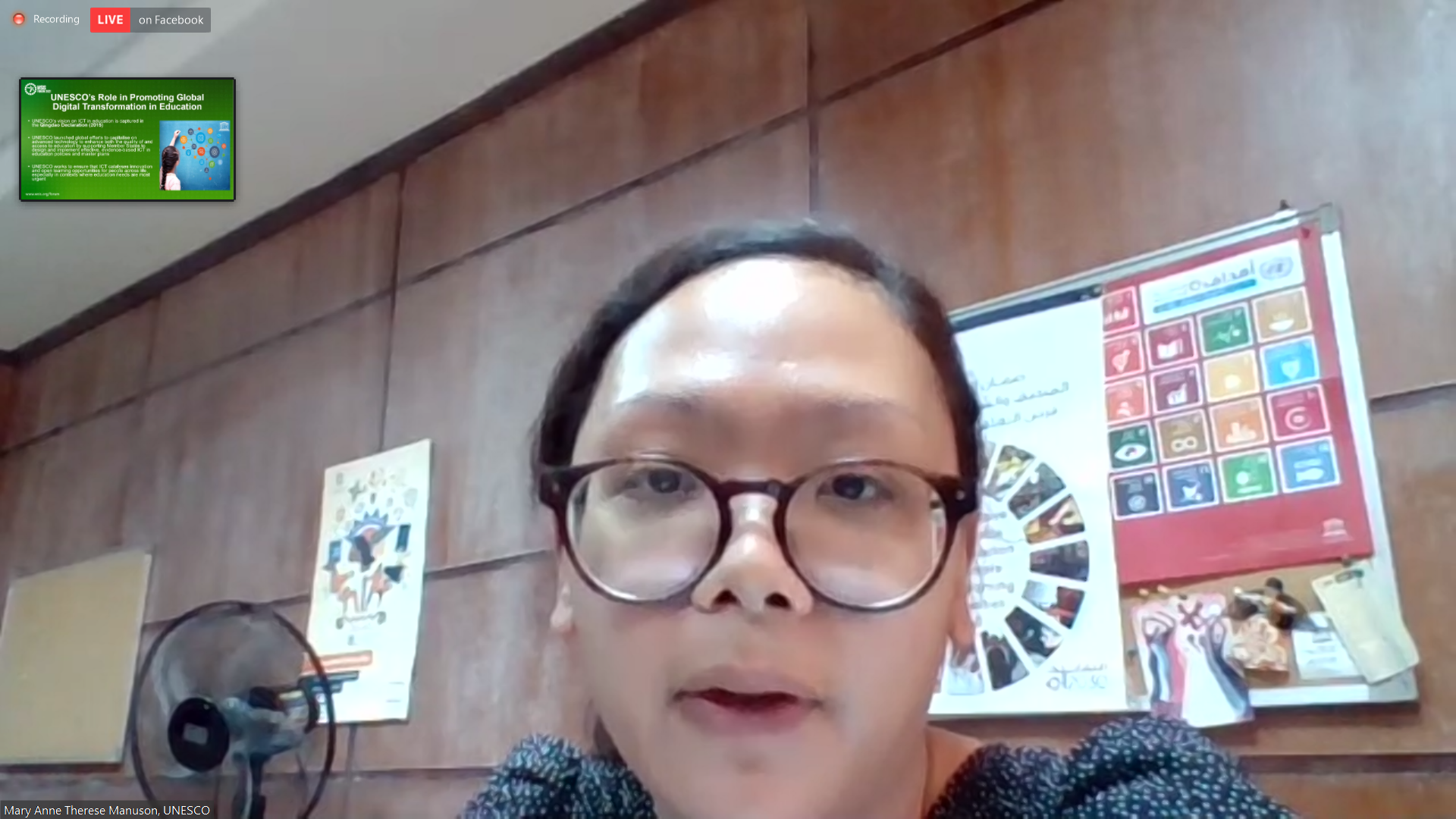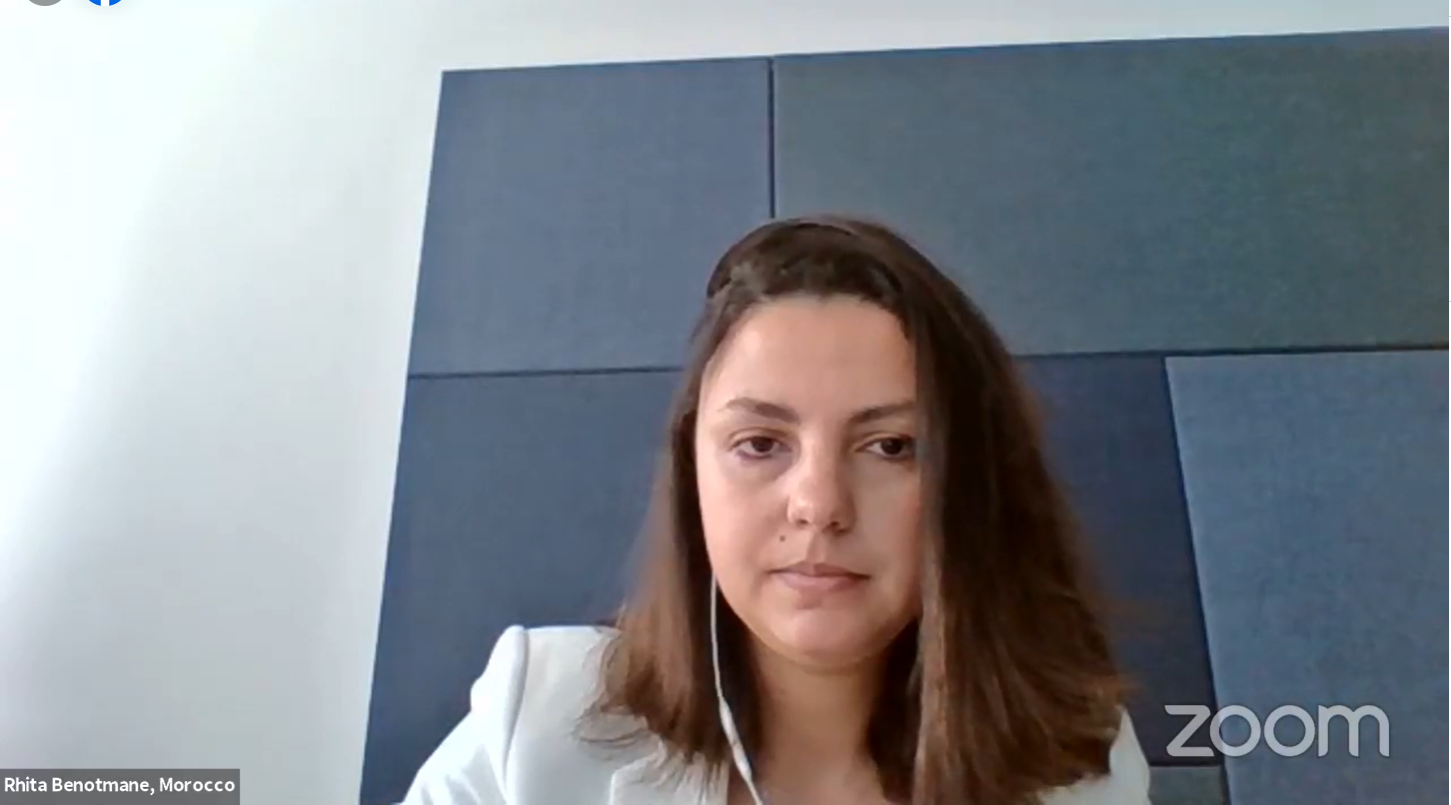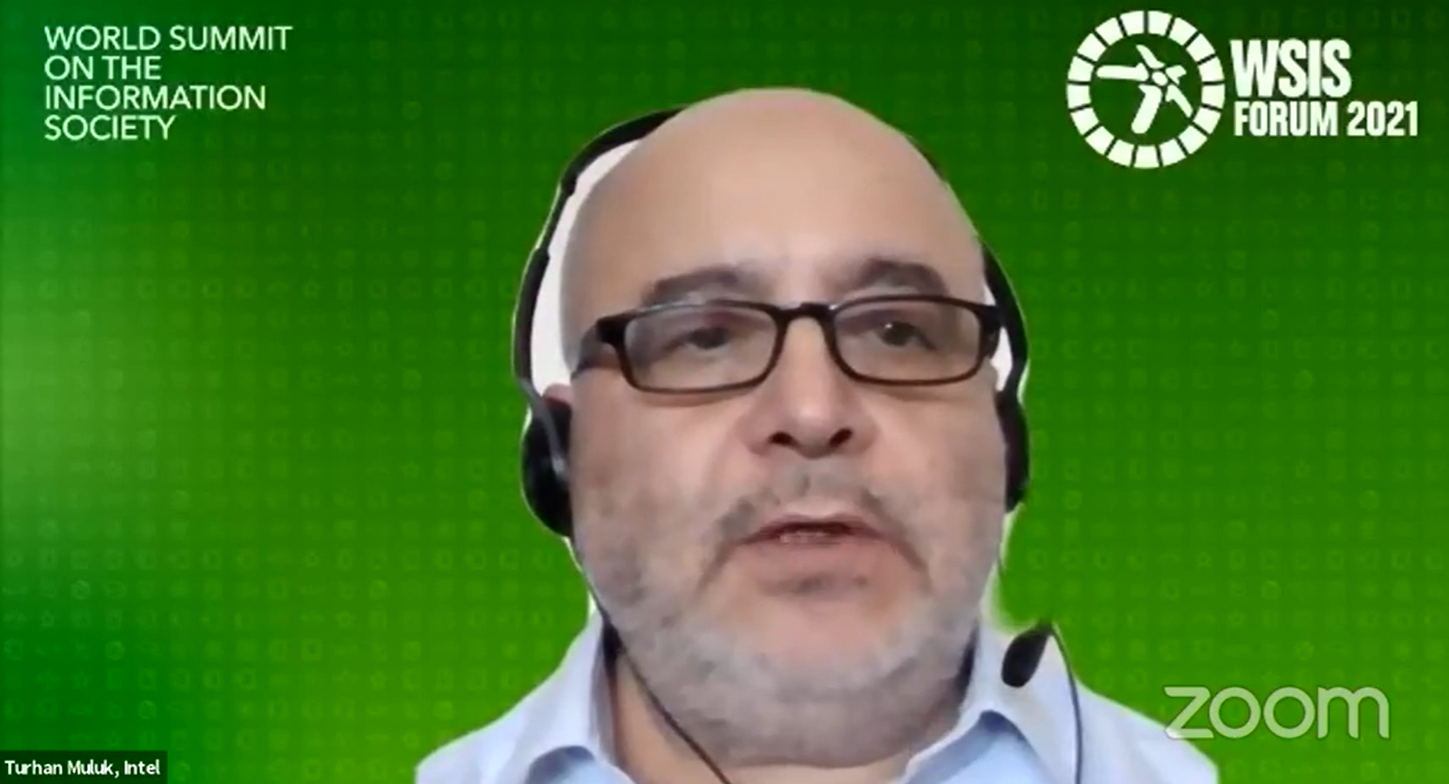ICTs for Inclusive, Resilient and Sustainable Societies and Economies in the Arab States
ITU
Session 338
Digital Transformation in the Arab Region
As most countries across the world grapple with the effects of the COVID-19 pandemic, the role of ICTs and services and the digital infrastructure on which they ride and grow have become central to continued economic and societal activity and to lessening the impact of the pandemic. While research on the contribution of digitization to softening the impact of pandemics is limited, emerging evidence of their accelerating effects across all areas of people’s lives and economic sectors is compelling. For example, consumer and business surveys show that the COVID-19 pandemic has pushed consumers and businesses alike to adopt digital services and technologies, accelerating digital transformation in consumer behaviour and business activity by several years. Generally, the pandemic has forced a greater demand for digital reliance across the board, and this outcome is likely here to stay in the “new normal” as the utility of more abundant data and the lowering transaction costs of using those data affect how entrepreneurs, policy-makers and professionals make decisions. The pandemic, however, is just one driver of current trends. Climate responsibility, continued economic development, demographic shifts and social well-being are other key drivers.
In the light of these global trends, policy development focused on inclusion, access, security, skills and sustainability in terms of emerging technologies and their benefits is poised to become a defining characteristic of the 2020s. As highlighted in the World Economic Forum’s White Paper “The Digital Arab World: Understanding and embracing regional changes in the Fourth Industrial Revolution,” the Arab States region, given its unique set of characteristics, has the opportunity to set an example in how to leverage emerging technologies and digital solutions within targeted local contexts and to create regional opportunities, including in the area of 5G and associated use cases, such as education, health, government and smart cities, that can address some of the most pressing regional and local challenges, including youth unemployment, natural resource management and economic diversification, with a view towards sustainable development and inclusive growth.
This session is intended to shed light on some the efforts by governments and private sector in the Arab region digitally transform their societies. Moreover, it will touch upon the prospective strategic regional collaboration that is needed in this area.

Mr. Karim Abdelghani comes with an experience of around 17 years in Information and Communication Technology, specifically in the area of international relations in this vibrant field. Throughout these years, he worked for the Ministry of Communications and Information Technology of Egypt, the International Finance Corporation, and the ITU. He is a Chevening scholar and received a Masters degree in International Development from the University of Birmingham in 2009. Moreover, he is currently the Programme Coordinator in the ITU Arab Regional Office where he coordinates with stakeholders in the region on several regional issues including Smart Learning, digital health, Arab Digital Content, digital agriculture, ICT Indicators, and digital innovation ecosystems.
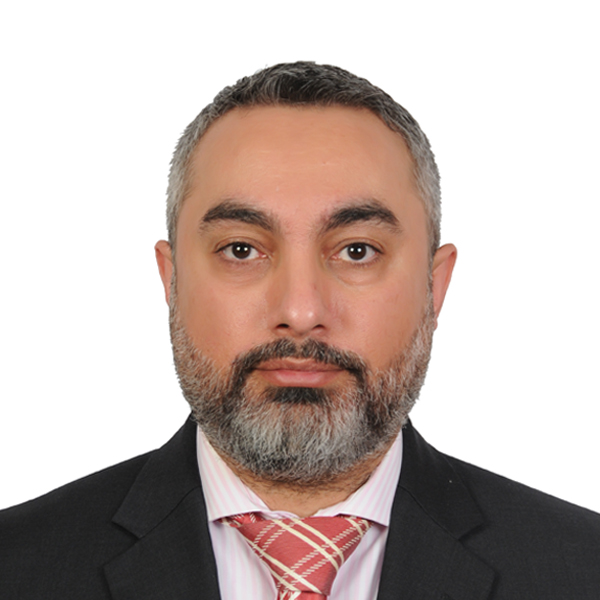
Adel Mohamed Darwish, the recently appointed Director, Regional Office of the International Telecommunications Union (ITU) for the Arab States, covering 22 Arab countries, has more than 20 years’ experience in the field of telecommunications, spanning incumbent operator, startup operator, and regulator. In his different roles, Mr. Darwish has been involved with international relations, not only in the ITU, but also in organizations including ICANN, GSMA, the GCC Council, the League of Arab States, Arab Regulatory Network (AREGNET), and SAMENA Council.
Based in Bahrain, Mr. Darwish has held leadership positions in major conferences at the ITU and outside. He is known for his leadership of the GCC Council Roaming Working Group from 2009 to 2020, during which time the group achieved a major reduction in roaming rates in the region. Mr Darwish was also active in international bilateral projects and negotiations both within the Arab region and beyond.
Mr. Darwish, with the experience from both private and public sectors, is committed to strengthening regional ICT evolution as well as further enhancing the role of the ITU at the Arab regional level, coordinating globally with other regions. His vision is to help achieve an information society, empowered by the interconnected world, where telecommunication/information and communication technologies enable and accelerate social, economic and environmentally sustainable growth and development for everyone

Mrs. Rhita BENOTMANE is an IT engineer. She is a graduate of the Institute of Post and telecommunications in Morocco, and Telecom sudParis engineering school (INT Evry) in France. Rhita BENOTMANE has a 9-year career with the operator Maroc Telecom. She started her career in 2010, as Internet and DATA Mobile project manager, then held the position of manager of DATA platforms service within the Engineering and Deployment Department, until August 2019.
In September 2019, she joined the Agency of Digital Development (ADD), as head of strategy and monitoring unit.
Rich of 10 years’ experience in Telecoms and ICT, Rhita has multiple skills in agile management of technical and strategic projects.

Ms Manuson recently joined the Education Unit of the UNESCO Cairo Office as Programme Specialist. From 2019 to 2021, she was Assistant Director and Head of the Education, Youth and Sports Division of the ASEAN Secretariat. She held various roles in UNESCO’s Education sector from 2011 to 2019, serving in offices in Bangkok, Tehran and Amman. Ms Manuson has been involved in initiatives focused on technical and vocational education and training (TVET), non-formal education, lifelong learning, education systems strengthening and SDG4-Education 2030 coordination. Prior to joining UNESCO, Ms Manuson worked for the Southeast Asian Ministers of Education Organization.
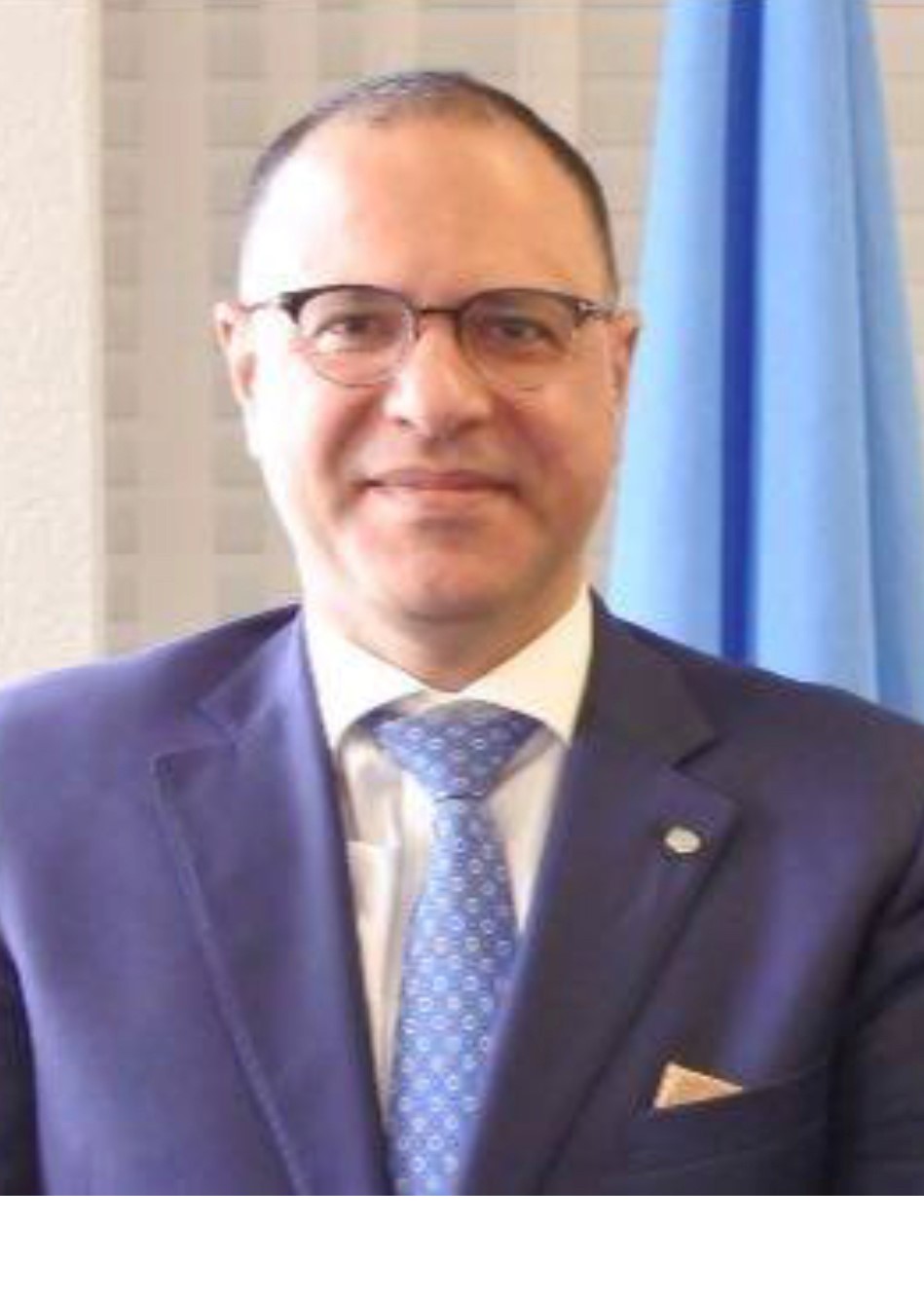

Turhan Muluk joined Intel in 2006. He is representative of Intel at ITU-D Sector and working for Governments, Markets and Trade Group in EMEA Region.
Before joining to Intel, he worked 14 years for Turk Telekom on different wireless broadband projects including future wireless technologies. He also involved with ETSI, ITU, IEEE studies and worked as Vice Rapporteur at different ITU-D Questions. Turhan has also organized different joint activities together with ITU.
He was the chairman of WiMAX Forum for the Middle East and Africa. Turhan Muluk is graduated from the Electrical and Electronics Engineering Department of the METU in Turkey and a member of IEEE.
-
 C1. The role of governments and all stakeholders in the promotion of ICTs for development
C1. The role of governments and all stakeholders in the promotion of ICTs for development
-
 C2. Information and communication infrastructure
C2. Information and communication infrastructure
-
 C6. Enabling environment
C6. Enabling environment
-
 C7. ICT applications: benefits in all aspects of life — E-government
C7. ICT applications: benefits in all aspects of life — E-government
-
 C7. ICT applications: benefits in all aspects of life — E-business
C7. ICT applications: benefits in all aspects of life — E-business
-
 C7. ICT applications: benefits in all aspects of life — E-learning
C7. ICT applications: benefits in all aspects of life — E-learning
-
 C7. ICT applications: benefits in all aspects of life — E-health
C7. ICT applications: benefits in all aspects of life — E-health
-
 C7. ICT applications: benefits in all aspects of life — E-employment
C7. ICT applications: benefits in all aspects of life — E-employment
-
 C7. ICT applications: benefits in all aspects of life — E-environment
C7. ICT applications: benefits in all aspects of life — E-environment
-
 C7. ICT applications: benefits in all aspects of life — E-agriculture
C7. ICT applications: benefits in all aspects of life — E-agriculture
-
 C7. ICT applications: benefits in all aspects of life — E-science
C7. ICT applications: benefits in all aspects of life — E-science
-
 C11. International and regional cooperation
C11. International and regional cooperation
This session will shed light on the digital transformation efforts in the Arab region. As such, these efforts affect all of society and all stakeholders. Hence, this session is linked to most of the WSIS action lines as outlined above.
-
 Goal 1: End poverty in all its forms everywhere
Goal 1: End poverty in all its forms everywhere
-
 Goal 2: End hunger, achieve food security and improved nutrition and promote sustainable agriculture
Goal 2: End hunger, achieve food security and improved nutrition and promote sustainable agriculture
-
 Goal 3: Ensure healthy lives and promote well-being for all
Goal 3: Ensure healthy lives and promote well-being for all
-
 Goal 4: Ensure inclusive and equitable quality education and promote lifelong learning opportunities for all
Goal 4: Ensure inclusive and equitable quality education and promote lifelong learning opportunities for all
-
 Goal 5: Achieve gender equality and empower all women and girls
Goal 5: Achieve gender equality and empower all women and girls
-
 Goal 6: Ensure access to water and sanitation for all
Goal 6: Ensure access to water and sanitation for all
-
 Goal 7: Ensure access to affordable, reliable, sustainable and modern energy for all
Goal 7: Ensure access to affordable, reliable, sustainable and modern energy for all
-
 Goal 8: Promote inclusive and sustainable economic growth, employment and decent work for all
Goal 8: Promote inclusive and sustainable economic growth, employment and decent work for all
-
 Goal 9: Build resilient infrastructure, promote sustainable industrialization and foster innovation
Goal 9: Build resilient infrastructure, promote sustainable industrialization and foster innovation
-
 Goal 10: Reduce inequality within and among countries
Goal 10: Reduce inequality within and among countries
-
 Goal 11: Make cities inclusive, safe, resilient and sustainable
Goal 11: Make cities inclusive, safe, resilient and sustainable
-
 Goal 17: Revitalize the global partnership for sustainable development
Goal 17: Revitalize the global partnership for sustainable development
This session will shed light on the digital transformation efforts in the Arab region. As such, these efforts affect all of society and all stakeholders. Hence, this session is linked to most of the SDGs as outlined above.


